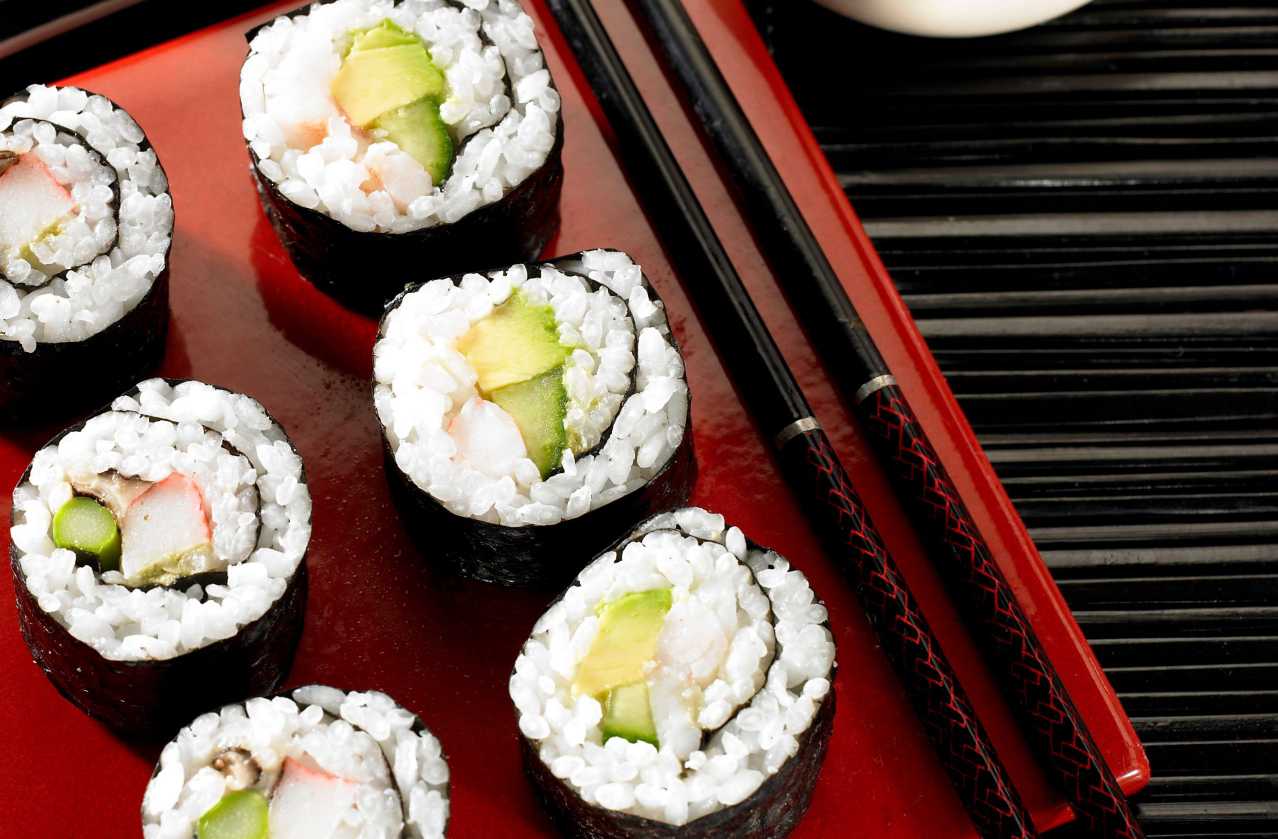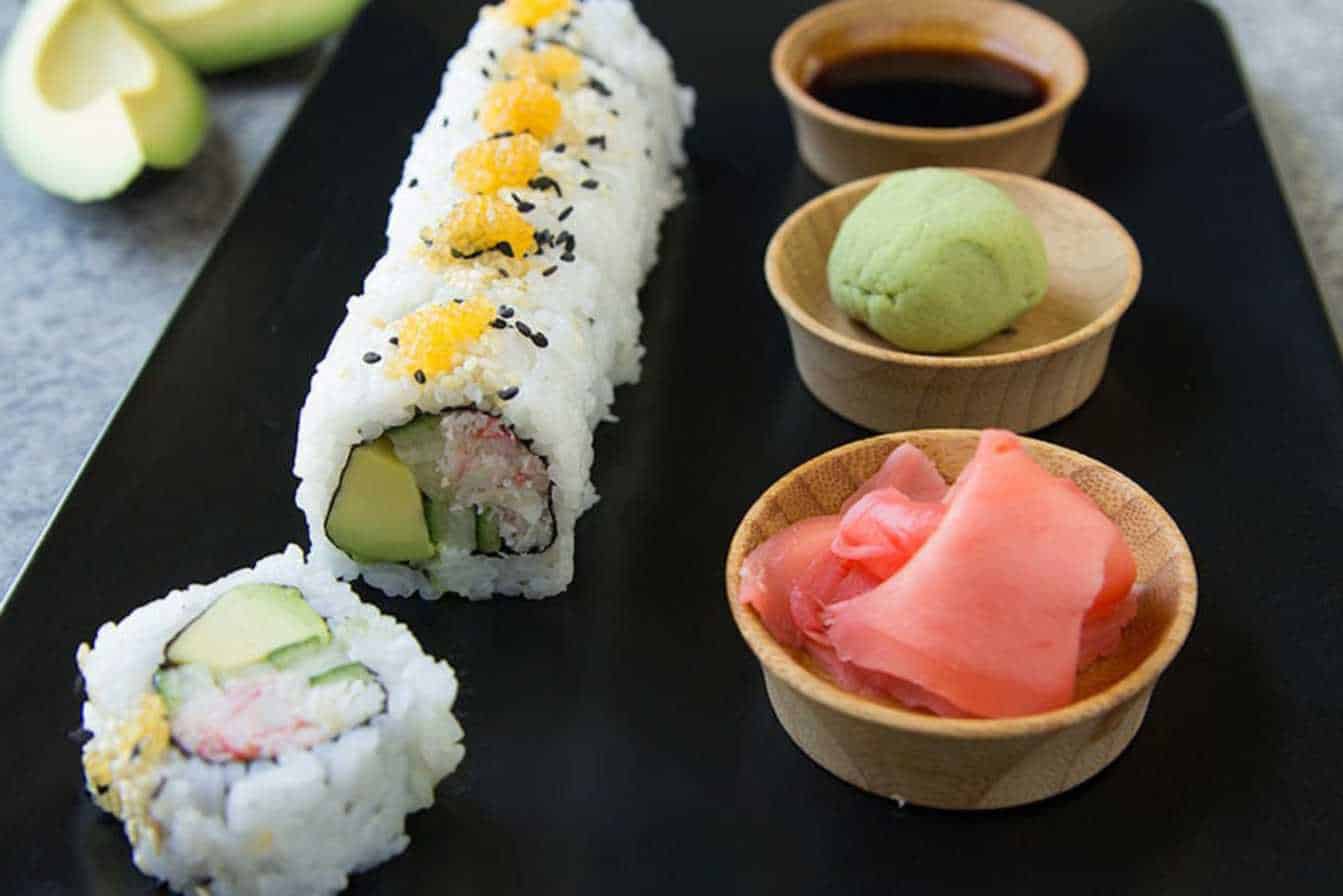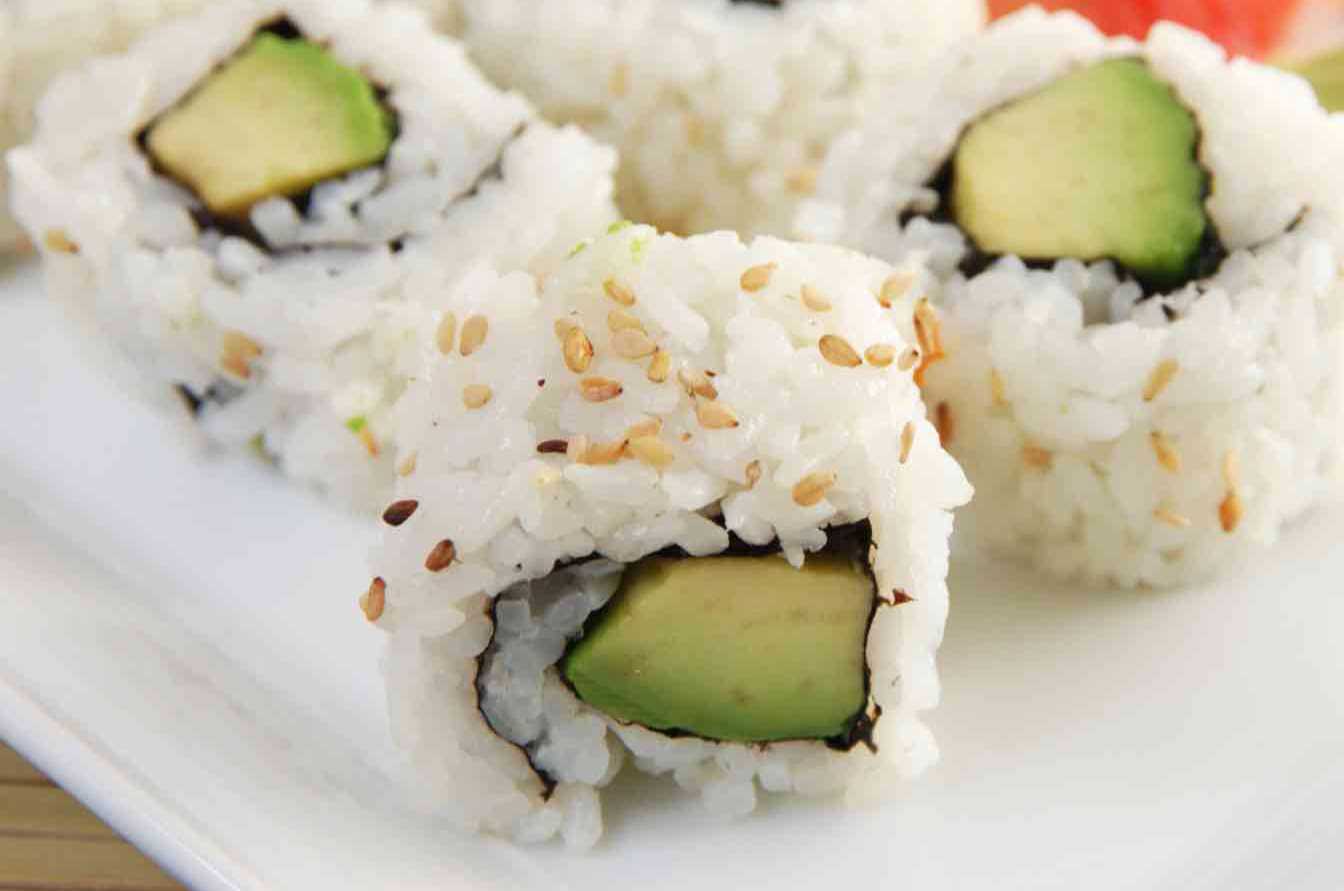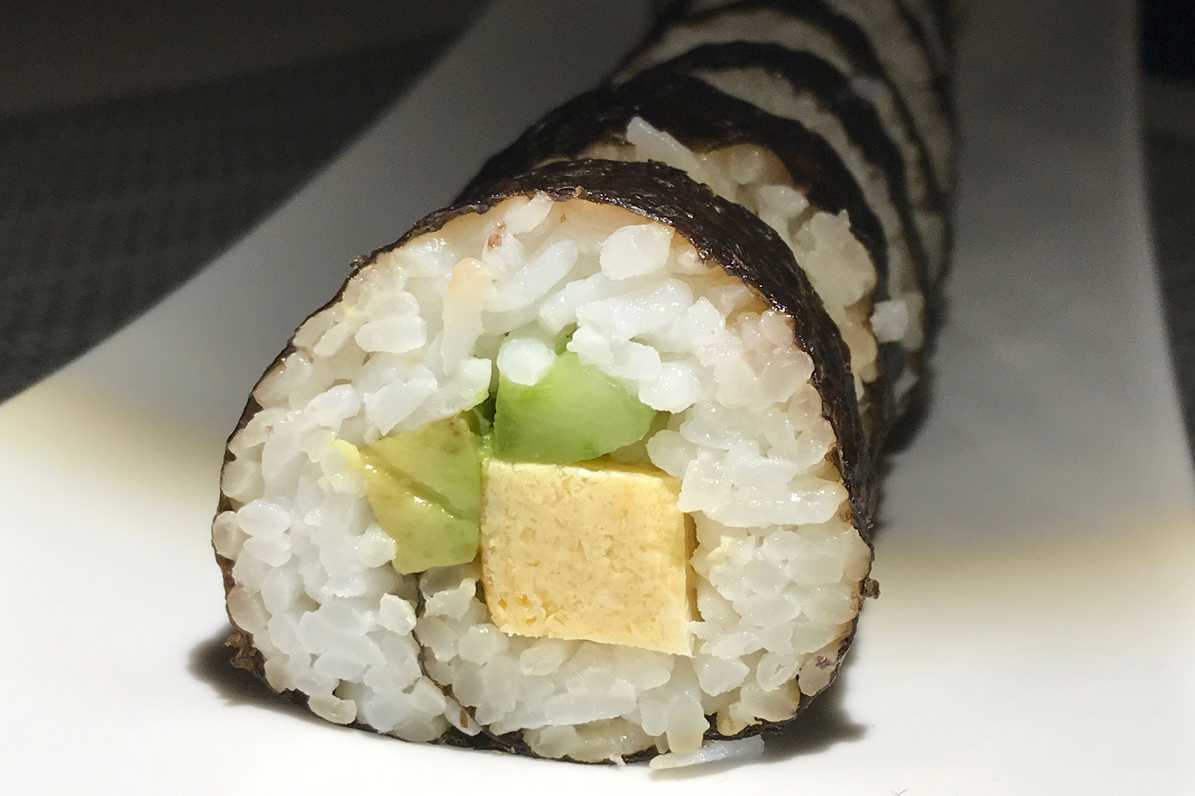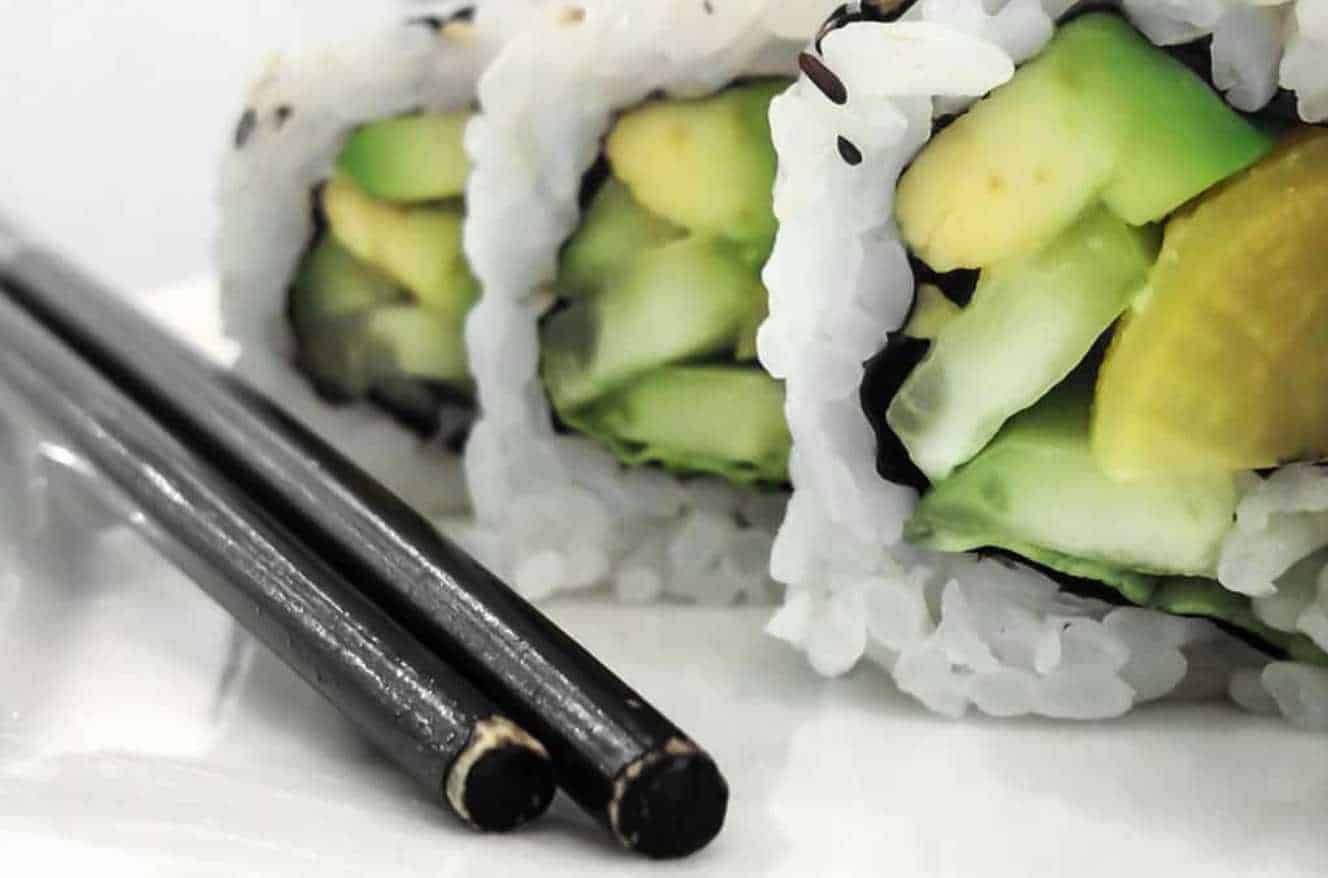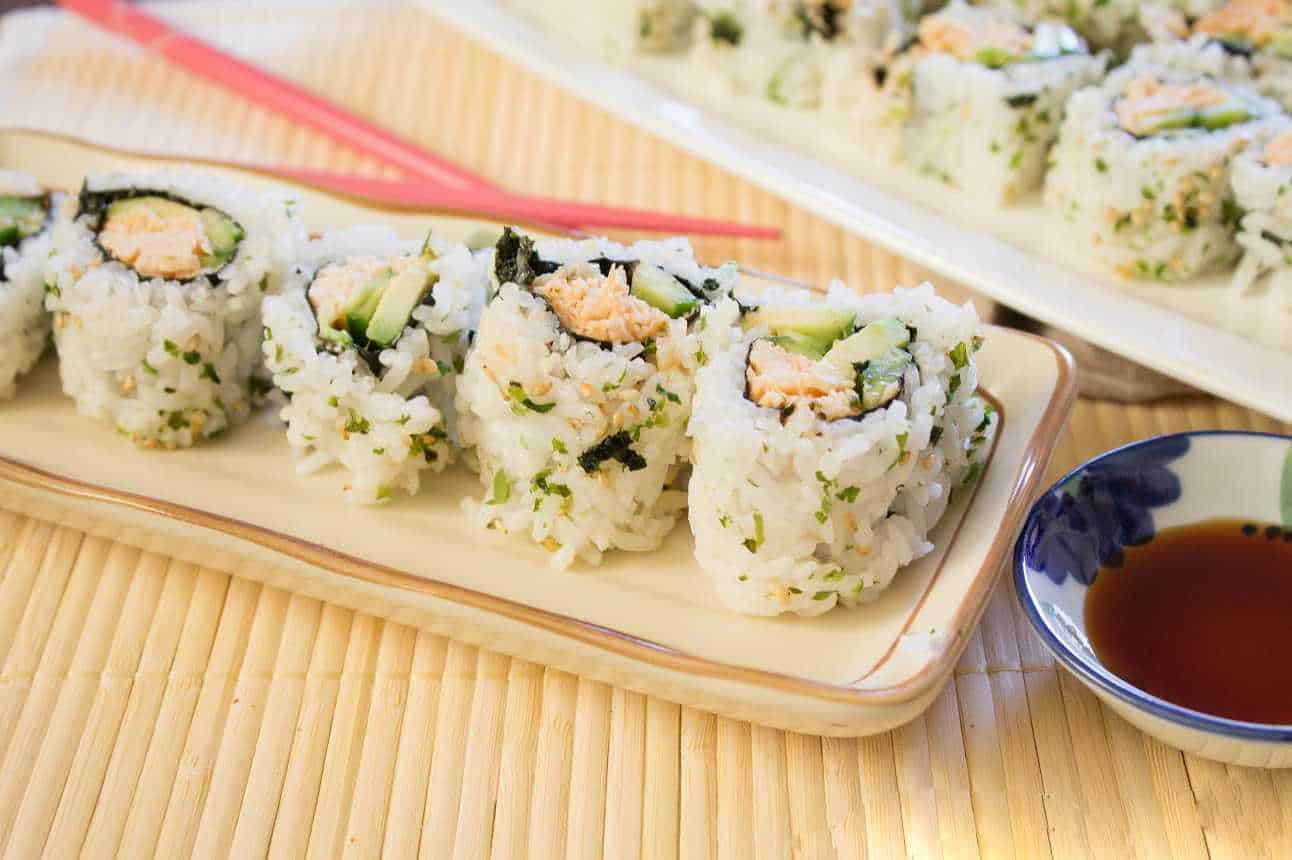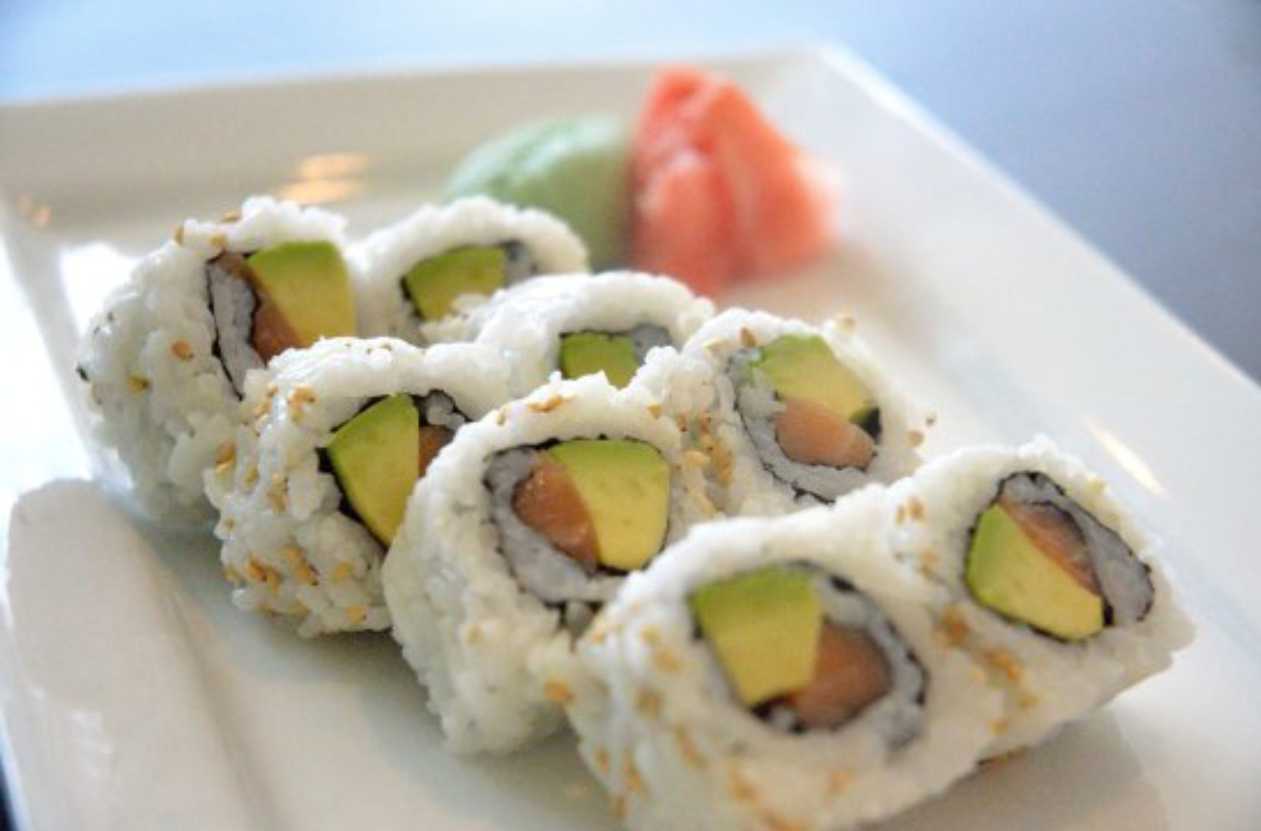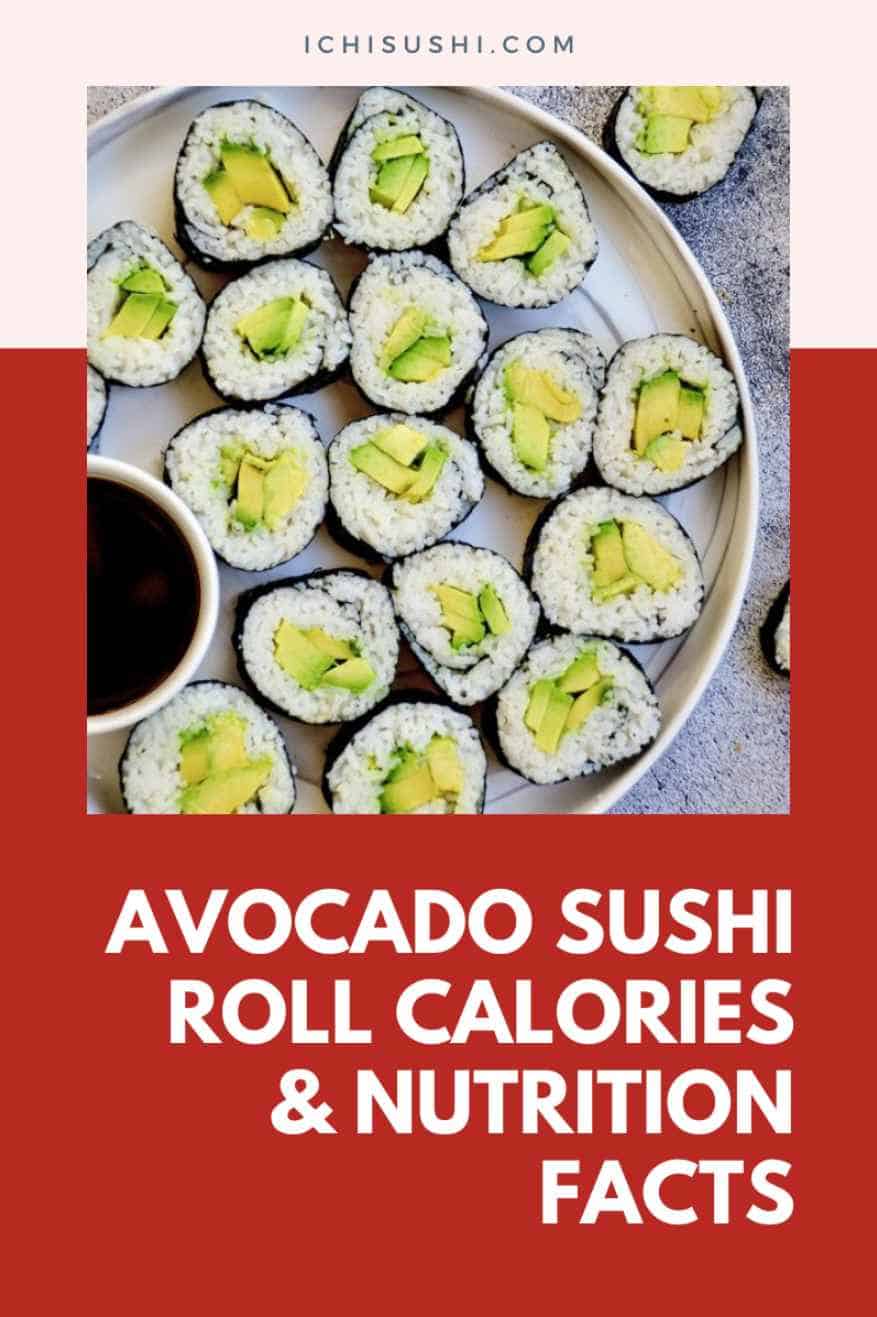Sushi is a popular Japanese food in many parts of the world. Despite their modest size, sushi rolls might contain more calories than you assume.
The question is, “How many calories are in an avocado sushi roll? Be familiar with avocado sushi roll calories and its nutrition facts to decide if it’s right for you.
What is an avocado sushi roll?
Avocado is a strange fruit in Japan. Few people know that chefs do not usually include it in sushi rolls.
Avocados, mainly from Mexico, began accessible in Japanese shops only in the late 1970s. Due to its rich flavor, caloric amount, and buttery consistency, the Japanese named it “butter of the forest.”
Sushi became popular in the United States after its introduction in 1970. Restaurants did not use avocados in sushi at the time.
A Japanese chef in Los Angeles 45 years ago was making sushi and was having trouble finding toro. His sushi dish relied heavily on the delectable, fatty component of the tuna. The fatty tuna had a melt-in-your-mouth quality.
The chef innovatively substituted avocado for toro due to its similar texture and the ingredient’s availability in California. Avocado has a similar consistency to toro and is popular among Americans. Sushi with avocado became famous and well accepted.
What ingredients are needed for avocado rolls?
With a few essential ingredients, you can make a delicious vegan roll! Here’s what you’ll require:
- Sushi Rice: Sushi rice is vinegared rice used in sushi. It requires a short grain type of rice. The long-grain rice doesn’t work out very well for sushi rolls.
- Sushi Vinegar: You’ll need rice vinegar, salt, and sugar to achieve a sour, sweet, and salty flavor balance. It would be best to use rice vinegar for this, not just another vinegar. Otherwise, the flavor would be too strong.
- Avocado: You’ll need a big avocado thickly sliced for this dish. Select a ripe one with black and dark green speckles. When you press down on the avocado, it should feel not hard but somewhat firm.
- Nori Sheets: You can find these seaweed sheets in most grocery shops, and they are reasonably priced. If not, Amazon has them.
- Spicy Mayo: This mayonnaise with a kick is optional but delicious. This condiment is just sriracha and mayo mixed in equal proportions.
Caloric Content in an Avocado Roll
Since it’s the most straightforward sushi type to make, the avocado roll contains the least calories. A roll contains about 135-140 calories. This food is a light roll excellent for individuals not fans of fish.
The following table shows the calorie values for 6-piece of avocado and other standard sushi rolls:
| Sushi Type | Calorie Intake (%) | Calorie Value |
| Avocado Roll | 7% | 140 |
| Cucumber Roll | 7% | 135 |
| Dragon Roll | 25.3% | 507 |
| Rainbow Roll | 23.7% | 476 |
| Tuna Roll | 9.2% | 184 |
| Philadelphia Roll | 16% | 320 |
| Spider Roll | 15.8% | 317 |
| Caterpillar Roll | 16.45% | 329 |
| California Roll | 11.25% | 225 |
The calories in a 100-gram avocado roll are around 92. A mid-sized roll of about 190 grams contains approximately 175 calories. This intake accounts for roughly 7% of daily calories for an adult of average weight and activity level.
To get a sense of how much the calories in a mid-size avocado sushi roll are, it is comparable to the calories in three apples, two 220 ml of Coca-Cola, and a glass of milk.
To burn these calories, you’ll need to bike for around 25 minutes, run for at least 18 minutes, or swim for roughly 21 minutes.
Calories in Small, Medium, and Big Avocado Rolls
The table below indicates the number of calories for different servings of avocado rolls:
| Number of Rolls | Size | Grams | Calories |
| 1 | Small | 152 | 140 |
| 2 | Small | 304 | 280 |
| ½ | Medium | 95 | 87.5 |
| 1 | Medium | 190 | 175 |
| 2 | Medium | 380 | 350 |
| 3 | Medium | 570 | 525 |
| 1 | Big | 247 | 227.5 |
| 2 | Big | 494 | 455 |
Where do the calories in avocado rolls come from?
Nori, rice, vegetables, and fish appear relatively healthy. So, where do you get your calories? Which components are good for you and which are bad for you?
When it comes to sushi calories, white rice is your worst enemy. After all, rice is the most crucial ingredient of sushi!
White rice is a poor ingredient since it is high in processed carbs and lacks fiber. As a result, it merely supplies refined carbohydrates with no genuine health benefits.
When you eat too many processed carbs, your blood sugar levels rise, inflaming your body.
Sushi rice also lacks fiber, and when coupled with sugar and vinegar, it breaks down easily in the body. For people with diabetes, this causes insulin surges, which is harmful.
White rice, being more processed, has fewer nutrients compared to whole grain varieties like brown rice. Brown rice is a much better alternative because it is higher in fiber and lower in calories.
Nutrition Facts of Avocado Rolls
For every 100 grams of avocado roll, you’ll get the following:
| Nutritional Content | Per 100 Grams | Per Ounce |
| Calories | 92 | 26.1 |
| Protein | 1.81 | 0.5 |
| Fat | 1.5 | 0.4 |
| Carbs Total | 17.71 | 5 |
| Fiber | 1.4 | 0.4 |
| Water | 77.57 | 22 |
Although an avocado roll isn’t as heavy as other sushi rolls, it is a nutritious option. Vegetarian sushi gets its calories from the avocado’s healthful monounsaturated fats.
Additionally, avocados are high in fiber, folate, and antioxidants. They contain more than 20 vitamins and minerals per serving.
The following are the vitamins and minerals you’ll get per 100 grams of avocado roll:
| Vitamins/Minerals | Amount |
| Thiamine (Vitamin B1) | 0.024 milligrams |
| Riboflavin (Vitamin B2) | 0.03 milligrams |
| Niacin (Vitamin B3) | 0.398 milligrams |
| Pyridoxine (Vitamin B6) | 0.048 milligrams |
| Folic Acid (Vitamin B9) | 0.011 micrograms |
| Vitamin C | 1.7 milligrams |
| Vitamin E | 0.23 milligrams |
| Vitamin K | 0.003 milligrams |
| Potassium | 69 milligrams |
| Calcium | 5 milligrams |
| Magnesium | 8 milligrams |
| Iron | 0.21 milligrams |
What are the health benefits of eating avocado rolls?
Good for the Heart
A natural plant sterol called beta-sitosterol can be found in every 100 grams of avocado. Regularly consuming beta-sitosterol helps maintain safe cholesterol levels, which is crucial for the heart.
Promotes Healthy Eyesight
Avocados contain the phytochemicals lutein and zeaxanthin, which are found in eye cells. They aid antioxidant protection, which helps to reduce damage caused by UV rays.
Monounsaturated fats in avocados also help absorb other valuable antioxidants, including beta carotene. As a result, incorporating avocados into your diet may prevent age-related macular degeneration.
Prevents Osteoporosis
Vitamin K in half an avocado offers around 18% of the recommended requirement.
This nutrient is frequently ignored, although it is critical for bone health. Getting adequate vitamin K boosts calcium absorption and lowers calcium excretion through the urine.
Reduces Cancer Risk
Avocados contain chemicals that may aid in the prevention of some malignancies.
A high folate consumption helps lower the incidence of colon, stomach, and cervical cancers. Half an avocado has about 59 mcg of folate, about 15% of the daily intake.
Also, avocados are abundant in polyphenols and carotenoids. Both have cancer-fighting qualities. Carotenoids, in particular, help protect against tumor growth.
Supports Fetal Development
Folate is an essential nutrient that supports healthy pregnancy. Appropriate intake lowers the incidence of miscarriage and neural tube defects. Avocados also include fatty acids that are important for fetal development and a balanced diet.
Lowers Depression Risk
Avocados are high in folate, a vital nutrient for general dietary health. Studies reveal that low folate levels can cause depression.
Folate prevents the formation of homocysteine, a chemical that can obstruct blood flow and nutrient delivery to the brain. Excess homocysteine can lead to cognitive dysfunction and depression.
The extra buildup also prevents the release of dopamine, serotonin, and norepinephrine. These hormones govern sleep, mood, and appetite.
Improves Digestion
Avocados abound in fiber, with about 6–7 grams per half fruit. Natural fiber-rich meals can help prevent constipation, keep the digestive tract healthy, and reduce colon cancer risk.
Avocados are also high in nutrients that are necessary for good health. Regularly eating them may improve the quality of your diet. Getting adequate fiber in your diet is also important because it fosters the growth of beneficial microorganisms.
Boosts Gut Health
Fiber stimulates regular bowel movements. These daily processes are necessary to eliminate toxins through stool and the bile.
Dietary fiber also boosts gut flora and microbial diversity. This nutrient supports optimal bacterial balance in the body. Maintaining this balance can help minimize digestive system inflammation and irritation.
Provides Relief from Osteoarthritis
Saponins are present in avocados, soy, and a few other plant foods. These compounds may help with the symptoms of osteoarthritis in the knees and hips.
However, the long-term benefits of saponins in individuals with osteoarthritis have yet to be proven by experts.
Contains Antimicrobial Properties
Avocados and avocado oil carry antibacterial compounds. They aid in defense of the body against infections caused by Staphylococcus aureus and Streptococcus agalactiae.
Protects Against Chronic Illnesses
Avocados’ monounsaturated fats may aid in the prevention of chronic diseases such as cardiovascular disease.
Avocados are also high in fiber. Their high fiber content may minimize the occurrence of stroke, diabetes, hypertension, and gastrointestinal illnesses.
Fiber can also help obese people lose weight by lowering cholesterol levels and blood pressure and improving insulin sensitivity.
Summary
Avocado provides plenty of health benefits. However, you might be surprised by the avocado’s nutrition facts. You may wonder: “How many calories are in an avocado sushi roll?
Avocados are heavy in calories, and the bulk of these calories are from fat. So, eat avocados in moderation to limit your calorie and fat intake.

Hiroshi Nakamura, a Tokyo-born sushi chef turned US-based writer and critic, is the voice behind ichisushi.com, blending traditional sushi wisdom with modern insights.
